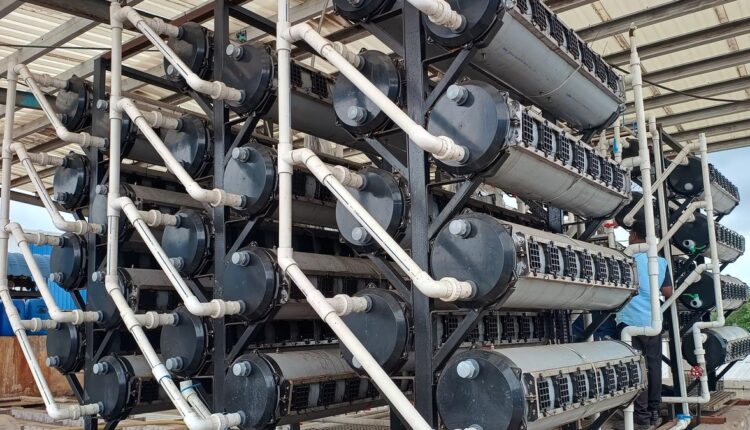JSP Enviro, a startup incubated at the Indian Institute of Technology Madras, has introduced an innovative wastewater treatment technology that promises to transform how industries handle organic waste. The company’s Bio-Electrochemical Anaerobic Digester System represents a significant advancement in sustainable industrial waste management.
How BEADS Technology Works
The Bio-Electrochemical Anaerobic Digester System utilizes advanced microbial processes to speed up the breakdown of organic waste materials. This wastewater treatment technology offers multiple benefits including reduced operational costs, energy recovery capabilities, and substantial carbon footprint reduction for manufacturing facilities.
Successful Implementation Across Tamil Nadu
The startup has demonstrated the effectiveness of its wastewater treatment technology through successful deployments in industrial areas of Erode and Perundurai in Tamil Nadu. These pilot projects have provided valuable data and proven the system’s reliability in real-world industrial conditions.
Building on these achievements, JSP Enviro is now preparing to expand its operations throughout India, targeting various industrial sectors that require efficient waste management solutions.
Environmental Impact and Carbon Benefits
Founder Priyadharshini Mani highlighted the environmental advantages of the wastewater treatment technology. The system can process 100 cubic meters of industrial effluent daily while preventing approximately 80 tons of carbon dioxide emissions each year.
The technology offers additional financial incentives as global carbon credit markets expand and the European Union implements carbon taxation policies. Indian manufacturers implementing this wastewater treatment technology could benefit financially from their reduced emissions.
Financial Returns and Market Expansion
JSP Enviro projects that most installations of their wastewater treatment technology will generate returns within three to four years. The company currently focuses on textile and dyeing facilities in the SIPCOT industrial zones of Perundurai and Erode.
The startup has ambitious expansion plans targeting the food and beverage industry, pharmaceutical sector, and specialty chemical manufacturers. This growth strategy will introduce sustainable waste management practices to a wider range of industrial applications.
Future Prospects
The introduction of this wastewater treatment technology comes at a time when industries face increasing pressure to adopt environmentally responsible practices. With regulatory requirements becoming stricter and sustainability becoming a business priority, solutions like BEADS offer companies a path to meet both environmental goals and financial objectives.


